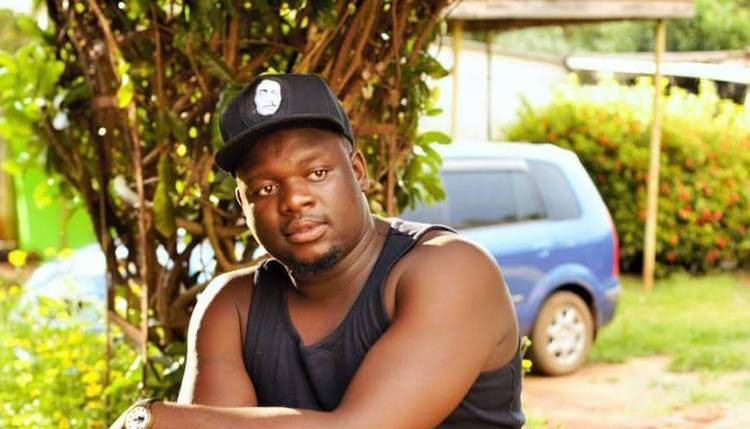The Sunday Mail

DANCEHALL music producers and artistes are on a collision course as they fail to find ways to share the fruits of their labour in a manner that is satisfactory to both parties, it has been established.
Artistes like Soul Jah Love, Seh Calaz, Mostaff, Platinum Prince, Killer T, Shinsoman, Sir Lincoln and Tocky Vibes have made and solidified their names in the genre through riding on riddims like the high-raving Body Slam, Chillslam and Blackout.
Producers PTK (real name Michael Murumbi) and Jipperz are the masterminds behind these riddims.
But it is the colossal gap in earnings that is fast developing between the riddim producers and artistes that has stirred debate and is pushing the former to become militant.
Most of the producers have an average or below average lifestyle, while some of the artistes that have rode on their riddims have gone through massive transformation in their careers and lifestyles.
Riddim is Jamaican patois derived from the English word rhythm, referring to the instrumental accompaniment to a song.
A dancehall song consists of two elements — the riddim and the voicing done by the deejay.
The producers sweat to come up with diverse sounds (riddims), but get little or no recognition for their effort.
“Something must be done to make sure that these producers are rewarded for their effort. We have producers that are responsible for most of the hit-tracks on the market, but have nothing to show for it.
“Most of the songs that have made names in the local dancehall are on these producers’ riddims. I can count a number of artistes that have come from below the producers’ level (in terms of lifestyle), but are now better off, yet the producers are part of their success,” bemoaned Grasten Chipangula or simply Mashasha.
Veteran hip-hop producers like Swizz Beats and Just Blaze have become household names and have healthy bank balances to support their status, while in Jamaica producers like Stephen “Di Genius” McGregor, Don Corleon, Dave Kelly and Jordan McClure now have their efforts recognised but, of course, after going through a serious battle.
It has taken more than five years for almost all the mentioned international producers to get recognition and realise huge financial benefit from their work. For McGregor, who is also son of roots reggae legend Freddie McGregor, his first real breakthrough came when he was 15 after Mavado recorded his first hit “Weh Dem a Do” over McGregor’s Red Bull and Guinness riddim.
Since then, he has produced riddims for Ne-Yo, Sean Paul and Nelly Furtado.
Local dancehall producers are collectively of the view that they are receiving a raw deal for their efforts despite being the backbone of the genre.
“Producers work day and night to make it all happen behind the scenes, but at the end of the day we go home with very little. We get a little recognition. Things are still tough and a meaningful breakthrough is just yet to come by for us to really enjoy the proceeds from our efforts,” argues youthful producer PTK.
Indeed, the producers’ work remains a vital cog in the industry.
Though local Zim Dancehall artistes are slowly shifting from using backtracks to the use of live instruments, they have ensured that their backing groups learn to play most of the popular riddims with ease.
“Godfather” Templeman said Zim Dancehall was a new industry, hence the concerns and debates were justified.
However, he said, there was need to make sure that the friction between the producers and artistes had to be resolved in an amicable way since it posed a threat to the success of the movement (dancehall).
“Zim Dancehall only went commercial two years ago, though it has been around for about 10 years. People are still jostling to get better positions within the sector, but there is no money as yet to cater for everyone,” he said.
“We are at a stage where people know an artiste but don’t know who produced him as was the case when Chamhembe (record label) pushed urban grooves artistes. But they will soon get to know about the producers, that is the normal trend,” added Templeman.
According to the veteran dancehall advocate, some dancehall music producers are threatening the success of the genre through doubling as producers and managers for the artistes they record. He says managing an artiste requires vast knowledge.
“A producer is not qualified to manage artistes. That is why we end up having problems of artistes missing shows or double-booking. In reality, a producer is supposed to get his money through a riddim launch that features all artistes on the sound. He is not supposed to pay them for their act on the day,” says Templeman.
Of late, it has also been reported that some producers are now offering to produce two or three riddims per month in exchange for a show.
Some of the hit songs that ride on popular riddims include Soul Jah Love’s Ndini Uya Uya, Killer T’s Zvakaitika kuMbare, Tocky Vibes Ndini Ndinorira and Dadza D’s Step Inna Dance.
Top riddims include Zimbo Favour, Kick Yard, Moment of Truth and Duplin Duplin, which have been produced by Levelz, Chill for Real, Funkidelic and Mockery, respectively.






